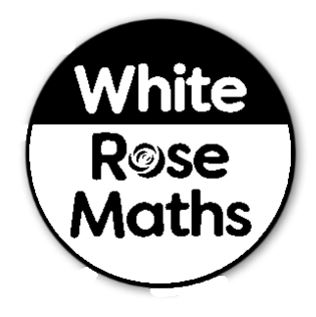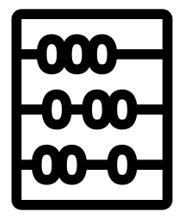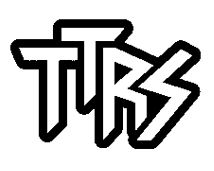Maths
Intent
At Sandringham Primary School, we believe it is vital to equip children with the mathematical skills required to operate in an increasingly complex and technologically-driven society. Through the use of the mastery approach, we endeavour to develop children’s ability to think logically, and to be creative enough to tackle problems in a variety of ways. Since maths is such an integral part of daily life, it is essential we provide children with a skill set to understand mathematical concepts at all levels of depth. This is achieved by exploring concepts in concrete forms, pictorially and in abstract forms which ensures the needs of every learner are met.
Rationale
- We believe that every child can achieve.
- Small steps build a solid foundation of deep mathematical understanding.
- Pupils’ mathematical fluency should be built without the need for rote learning.
- New concepts will be introduced using the Concrete-Pictorial- Abstract (CPA) approach
- Pupils learn to think mathematically to find patterns, connections and relationships between different concepts.
Concrete, Pictorial and Abstract (C-P-A)
Research shows that all children, when introduced to a new concept, should have the opportunity to build competency by following the CPA approach. This features throughout our schemes of learning.
- Concrete - Children should have the opportunity to work with physical objects/concrete resources, in order to bring the maths to life and to build understanding of what they are doing.
- Pictorial - Alongside concrete resources, children should work with pictorial representations, making links to the concrete. Visualising a problem in this way can help children to reason and to solve problems.
- Abstract - With the support of both the concrete and pictorial representations, children can develop their understanding of abstract methods.
We understand the importance of basic skills as a foundation for all Maths teaching and build basic skills, arithmetic and mental maths into our daily teaching. We also understand the need for children to be able to verbalise their understanding and explain their reasoning coherently. We teach this as a 'being a mathematician' skills and use vocabulary banks and sentence stems to help children build and prepare their answers.
Implementation
Our whole curriculum is shaped by our Trust and academy vision which aims to enable all children, regardless of background, ability, additional needs, and to flourish to become the very best version of themselves they can possibly be.

At Sandringham Primary School, we use the White Rose scheme for Years 1 to 6 to plan high quality, differentiated and interactive lessons, which ensure continuous progression, small step learning and challenge for all learners. Children are introduced to a range of models and images to support them in understanding the concepts of different operations through variation and representation. This allows children build to confidence and fluency in mathematical knowledge, concepts and skills leading to automaticity.
- Teaching for mastery - the research-based schemes of learning are designed to support a mastery approach to teaching and learning and are consistent with the aims and objectives of the National Curriculum.
- Putting number first - the schemes have number at their heart. A significant amount of time is spent reinforcing number in order to build competency and ensure children can confidently access the rest of the curriculum.
- Depth before breadth - easy-to-follow schemes support teachers to stay within the required key stage so that children acquire depth of knowledge in each topic. Opportunities to revisit previously learned skills are built into later blocks.
- Working together - Children can progress through the schemes as a whole group, encouraging students of all abilities to support each other in their learning.
- Fluency, reasoning and problem solving – the schemes develop all three key areas of the National Curriculum, giving children the knowledge and skills, they need to become confident mathematicians.
Our teaching sequences follow the National Curriculum’s guidance on developing three key mathematical skills:
- Fluency - It is essential that children are confident with the fundamentals of mathematics and can recall and calculate number facts rapidly. We strive to provide them with a range of mental and written methods so that they can do this with ease.
- Reasoning - We believe that it is not enough that children know that a method works, but that they are also able to understand why and how it works. Through the use of collaborative discussions with peers, we provide children with the means to demonstrate their understanding and number sense, making connections between different areas of mathematics and justifying their thinking.
- Problem Solving - Ensuring children can apply their mathematical skills to a range of problems is a core part of our teaching sequence. By providing children with increasingly challenging and complex problems and investigations, we develop their resilience and ability to be inquisitive.
To see the content of the mathematics curriculum we follow in each Year Group, please visit; www.gov.uk/government/publications/national-curriculum-in-england-mathematics-programmes-of-study
Teaching for Mastery
As a school, we follow a Mastery approach towards maths in a collaborative network with NCETM and the South Yorkshire Maths Hub. Teaching for mastery describes a classroom practise which enables children of all ages acquiring a long term understanding of the subject. There are five big ideas that underpin the teaching for mastery approach.

Early Number
This year Sandringham is taking part in the Mastering Number Programme. The project aims to secure firm foundations in the development of good number sense for all children, from Foundation 2 through to Year 1 and Year 2.
The aim over time is that children will leave KS1 with fluency in calculation and a confidence and flexibility with number. Attention will be given to key knowledge and understanding needed in Foundation 2 and progression through KS1, to support success in the future.

Times Tables
Knowing times table facts and how they work is a fundamental part of Mathematics. They link into many areas of Maths and are essential knowledge to success in later stages of education. The National Curriculum sets out that pupils should know all times tables up to 12 x 12 including inverse division facts by the end of year 4.
We use two programmes in school to help children develop automaticity with their times tables – Reflex Maths and Times Tables Rockstars.


Impact
- Children will develop a love of mathematics and talk positively about the subject.
- They will demonstrate a mastery of components by applying different mathematical methods and making connections.
- Our children will be able to have quick recall of all mathematical facts for their year group.
- They will be able to apply their skills to a range of problem solving and reasoning skills.
- The children will show pride in their work, display quality throughout and be confident with our core belief that all will achieve.